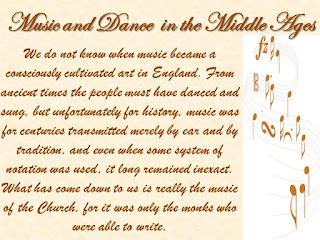Read about the history of the ballad, watch video and for a class project prepare a video on the ballad "Lord Randall"
THE MEDIEVAL BALLAD: "Lord Randall"
Watch video and then prepare a video on "Lord Randall":
The medieval ballad
The ballad is composed
of four-line stanzas. There is repetition, no moral aim, rapid flashes, mixture
of dialogue and narration with real and supernatural characters. The main
themes are: the supernatural, war, love and family tragedies.
The most famous
medieval ballad is by an anonymous author called “Edward”. It talks about a man
who kills his father and wants to exile to sea. His mother asks him what he
will do with his property and he answers her with a curse sending her to hell.
Medieval ballads
were orally transmitted through the ages. They are short, anonymous narrative
poems or songs set to music and they would change from country to country. They
are simple in form and language, made up of quatrains with a repeated refrain
in order to be easily remembered.
Ballads usually
tell a particular story of some tragic event (a murder or death) and includes
supernatural elements. Some are based on well-known legendary figures (like Robin Hood) or real historical
events.
Summary - Lord Randal -
Anonymous
Lord Randal is
an anonymous medieval ballad
based on Scottish traditions and it began to be diffused in the Middle Ages. It
is said to have analogues in German and Italian. It was set to music because it
was meant to be sung rather than read and also to increase its poetic quality.
It is simple in language and structure.
It is made up of
10 quatrains with a rhyme scheme abab. It is an equally-divided, direct
question-and-answer dialogue between a mother and her son. The setting is Lord
Randal’s home. It is divided into two parts.
The first part
contains the first 5 stanzas and it is about a mother who asks her son where he
has been and what he has done. He answers that he has been in the greenwood to
meet his true-love. Through this first part, there is the repeated refrain in
the last part of the first three lines and the whole fourth line.
In the second
part, there is a turning point in the 6th stanza, in which the
mother discovers that her son has been poisoned by his true-love. The second
part is a sort of will in which the mother asks her son what he will leave to
her, his sister, his brother and his true-love. He answers he will leave his
mother 24 cattle; he will leave his sister silver and gold; he will leave his
brother his lands; and finally, he will leave his true-love hell and fire. In
this part, there is the repeated refrain in the last part of the first three
lines and the whole fourth line.
The most important aspect is not the death of
Lord Randal, but his tragic story with the magical and mysterious atmosphere
surrounding his pending death.
















No comments:
Post a Comment